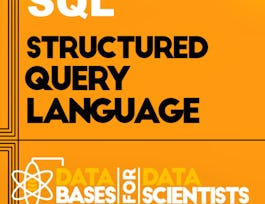Throughout Predicting Extreme Climate Behavior with Machine Learning, you'll explore both theoretical concepts and practical applications or machine learning and data analysis. You'll begin by analyzing unsupervised learning algorithms, mastering techniques like clustering and dimensionality reduction, and applying them to real-world climate datasets. You'll also explore supervised learning, gaining hands-on experience with algorithms such as Logistic Regression, Decision Trees, and Neural Networks.



Predicting Extreme Climate Behavior with Machine Learning
This course is part of Modeling and Predicting Climate Anomalies Specialization

Instructor: Osita Onyejekwe
Sponsored by Syrian Youth Assembly
Recommended experience
What you'll learn
Analyze and differentiate between various machine learning algorithms, including unsupervised and supervised methods
Apply dimensionality reduction techniques, such as Principal Component Analysis (PCA) and Singular Value Decomposition (SVD), to complex datasets
Implement supervised learning algorithms using Python, and evaluate their performance through practical exercises and real-world case studies.
Develop and apply effective clustering methods to analyze and segment data
Details to know

Add to your LinkedIn profile
4 assignments
August 2024
See how employees at top companies are mastering in-demand skills

Build your subject-matter expertise
- Learn new concepts from industry experts
- Gain a foundational understanding of a subject or tool
- Develop job-relevant skills with hands-on projects
- Earn a shareable career certificate


Earn a career certificate
Add this credential to your LinkedIn profile, resume, or CV
Share it on social media and in your performance review

There are 5 modules in this course
Data can be viewed in higher and lower dimensions, and this module will help you explore this key aspect of data science. PCA/SVD are two key methods of unsupervised machine learning in terms of dimensional reduction
What's included
6 videos3 readings1 assignment1 programming assignment1 discussion prompt1 ungraded lab
In this module, we delve into the concept of clustering, a fundamental technique in data analysis and machine learning. Clustering involves grouping a set of objects in such a way that objects in the same group (or cluster) are more similar to each other than to those in other groups. This module will provide a comprehensive exploration of clustering, including its various derivations, such as hierarchical clustering and K-Means.
What's included
3 videos4 readings1 assignment1 programming assignment1 ungraded lab
Regression is a cornerstone technique in machine learning, particularly when working with continuous variables, and is essential for modeling relationships between variables and predicting outcomes. In this module, we will explore the fundamental principles of regression, focusing on linear regression.
What's included
2 videos2 readings1 assignment1 programming assignment2 ungraded labs
In this module, we will explore classification techniques, a critical aspect of supervised learning in machine learning. Classification is the process of assigning labels to input data based on its features, and it is widely used for tasks like spam detection, medical diagnosis, and image recognition. Throughout this module, we will explore several key classification methods, including Logistic Regression, Decision Trees, Random Forest, and Support Vector Machines (SVM). Each of these techniques offers unique strengths and is suited to different types of data and problem contexts. By the end of this module, you will have a thorough understanding of how these classification algorithms work, how to implement them, and how to choose the right method for your specific supervised learning challenges.
What's included
9 videos3 readings3 programming assignments2 ungraded labs
This final module dives into Neural Networks and its application to climate data, primarily with different activation functions, layers, neurons and architectural structures of the network.
What's included
3 videos4 readings1 assignment1 discussion prompt1 ungraded lab
Instructor

Offered by
Why people choose Coursera for their career




Recommended if you're interested in Data Science

University of Colorado Boulder

University of Colorado Boulder

University of Colorado Boulder

University of Colorado Boulder

Open new doors with Coursera Plus
Unlimited access to 10,000+ world-class courses, hands-on projects, and job-ready certificate programs - all included in your subscription
Advance your career with an online degree
Earn a degree from world-class universities - 100% online
Join over 3,400 global companies that choose Coursera for Business
Upskill your employees to excel in the digital economy


